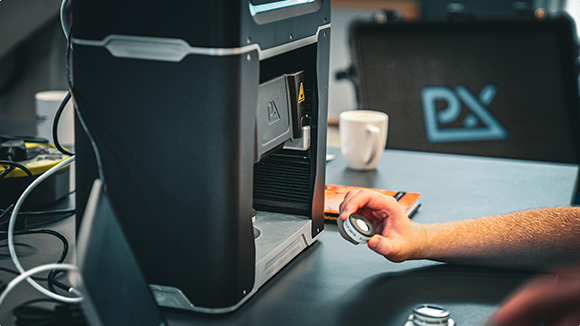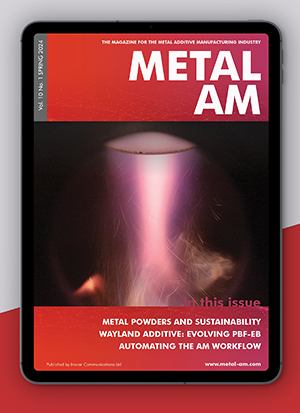Plastometrex and Renishaw aim to increase analysis and part confidence in Additive Manufacturing testing
February 27, 2024

Plastometrex, a developer of mechanical testing solutions based in Cambridge, UK, reports it has supplied Additive Manufacturing machine maker Renishaw with its proprietary Profilometry-based Indentation Plastometry (PIP) technology. The collaboration focuses on incorporating the enhanced capabilities of PIP into Renishaw’s testing processes, in an effort to increase the precision and efficiency of mechanical property analysis and part confidence in Additive Manufacturing.
Tensile testing in the AM sector presents several challenges: First, the time and material required to produce tensile coupons take up significant chunks of project timelines and budgets, while the use of separately additively manufactured tensile coupons may fail to fully represent the mechanical properties of complex additively manufactured parts, potentially affecting the reliability of data.
Renishaw’s adoption of Plastometrex’s PIP testing is intended to tackle these challenges. The PLX-Benchtop facilitates rapid, direct testing on different sections of AM parts, delivering comprehensive stress-strain curves in minutes. This method provides a more precise evaluation of a part’s mechanical properties and complements Renishaw’s existing testing procedures.
Benjamin Haigh, Materials Scientist at Renishaw, commented, “We can now use cubes built for product development for additional testing, saving us time and money. Additionally, the PLX-Benchtop can generate mechanical data for a wider range of parameters.”
By enabling users to directly test an additively manufactured part (and in several different locations), the PLX-Benchtop equips Renishaw with a more detailed understanding of the mechanical properties of a part while streamlining the testing process. The test itself is largely automated, taking under five minutes and requiring minimal sample prep. Furthermore, by bypassing the need for coupons and associated material and machining, Renishaw hopes to benefit from mechanical testing cost and time savings.
Jed Robinson-Wall, Materials Science graduate, added, “PIP technology is a fantastic complement to our existing mechanical testing regime. It gives us even greater insight into the quality of parts produced on our RenAM 500 series of metal Additive Manufacturing systems.”
This collaboration not only surmounts the traditional limitations of tensile testing but also sets a new standard for accuracy and efficiency in mechanical property analysis for Additive Manufacturing.
Download Metal AM magazine

















